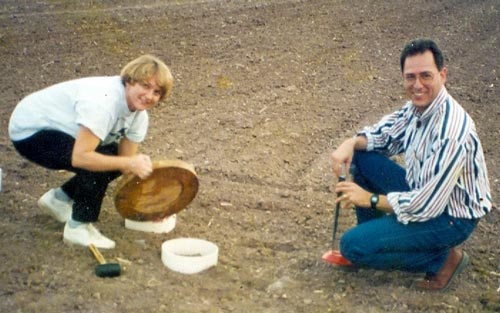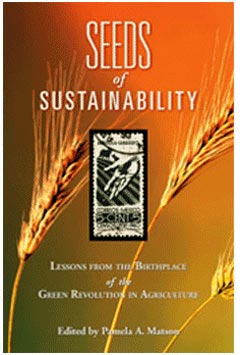 The Yaqui Valley is one of Mexico’s main bread baskets and supplies seeds and grain globally. It was the birthplace of the Green Revolution and, as the home of CIMMYT’s primary field station, Campo Experimental Norman E. Borlaug (CENEB), it has been a hub of agronomic research for decades, with a wealth of accumulated knowledge, field research, and survey data. However, the region is not without its problems. It faces environmental, resource, economic, and social challenges related to water resources, air and water pollution, policy changes, human health concerns, biodiversity conservation, and climate change.
The Yaqui Valley is one of Mexico’s main bread baskets and supplies seeds and grain globally. It was the birthplace of the Green Revolution and, as the home of CIMMYT’s primary field station, Campo Experimental Norman E. Borlaug (CENEB), it has been a hub of agronomic research for decades, with a wealth of accumulated knowledge, field research, and survey data. However, the region is not without its problems. It faces environmental, resource, economic, and social challenges related to water resources, air and water pollution, policy changes, human health concerns, biodiversity conservation, and climate change.
Twenty years ago, a multidisciplinary team of experts set out to address the issue of how to maintain livelihoods and increase food production, whilst protecting the environment. Led by biogeochemist Pamela Matson, economist Roz Naylor, and CIMMYT agronomist Iván Ortiz-Monasterio, their approach allowed for the investigation of a wide range of variables, and it soon became apparent that they were all connected in some way. Matson described Ortiz-Monasterio as a “lynchpin…serving both as research co-leader and a critical boundary-spanning individual, linking the research community with the farmers and decision makers of the valley.” Together, the team investigated the possibility of win-win-win solutions for economics, agronomics, and the environment in the wheat fields of the Yaqui Valley, and what would be needed to make these a reality.
 Seeds of Sustainability is the product of these 15 years of research, analysis, and evaluation in the Yaqui Valley. Edited by renowned scientist and Dean of the School of Earth Sciences at Stanford University, Pamela Matson, with contributions from experts worldwide, all of whom participated in research in the Valley, this book forms an invaluable resource for researchers, policymakers, and students, as it examines new approaches in agriculture that make sense for people and the environment. The development of the Yaqui Valley as a comprehensive case study has already had implications for understanding and managing humanenvironment systems extending well beyond the valley margins. In his comments (published on the book’s back cover), Prabhu Pingali, Deputy Director of the Agricultural Development Division of the Bill & Melinda Gates Foundation noted, “Seeds of Sustainability illustrates the kind of integrative research that will be needed to address the challenges our food systems face, now and in the future.”
Seeds of Sustainability is the product of these 15 years of research, analysis, and evaluation in the Yaqui Valley. Edited by renowned scientist and Dean of the School of Earth Sciences at Stanford University, Pamela Matson, with contributions from experts worldwide, all of whom participated in research in the Valley, this book forms an invaluable resource for researchers, policymakers, and students, as it examines new approaches in agriculture that make sense for people and the environment. The development of the Yaqui Valley as a comprehensive case study has already had implications for understanding and managing humanenvironment systems extending well beyond the valley margins. In his comments (published on the book’s back cover), Prabhu Pingali, Deputy Director of the Agricultural Development Division of the Bill & Melinda Gates Foundation noted, “Seeds of Sustainability illustrates the kind of integrative research that will be needed to address the challenges our food systems face, now and in the future.”
To order your copy of Seeds of Sustainability visit the Island Press website and enter code 5SEEDS for a 30% discount.
 Capacity development
Capacity development